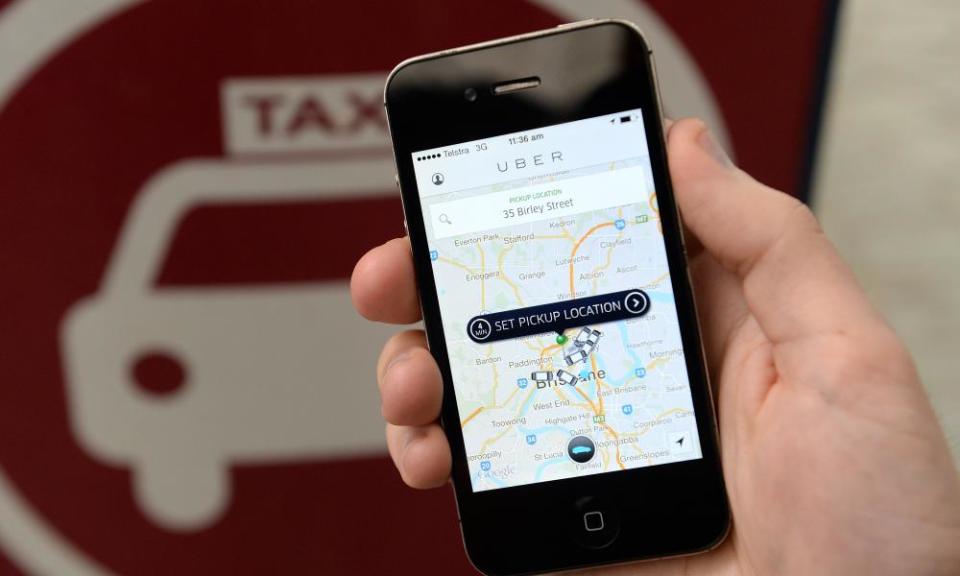Uber to cap surge pricing in NSW during public transport outages after deal with government

The New South Wales government has struck a deal with Uber to limit surge pricing when Sydney’s public transport network suffers outages, so stranded passengers who flock to the ridesharing platform aren’t stung with exorbitant fees.
In the first such agreement between an Australian government and the rideshare giant, Uber has been integrated into NSW’s Transport’s incident response process, which was first activated last week when a heritage factory went up in flames next to Central station.
When an unplanned disruption is declared, Uber will be asked to monitor and limit surge pricing that is triggered by a spike in demand for rides clustered around a small geographic area.
Uber will also issue notifications to drivers about disruptions so they can help meet the demand.
Related: NSW levy on ride-hailing and taxi passengers extended until 2029
However, it is unclear what impact the limit on surge pricing will have on Uber’s ability to incentivise drivers to service an area during disruption.
Stories of excessive surge pricing have become common in the aftermath of Sydney train outages.
The NSW transport minister, Jo Haylen, said the Sydney Trains network-wide collapse on 8 March – before the state election when her Labor government took office – showed “we needed to take action to fix this”.
Sign up for Guardian Australia’s free morning and afternoon email newsletters for your daily news roundup
When the network stopped running in early March, passengers reported Uber fares spiking to hundreds of dollars for short trips. Uber subsequently promised to reimburse customers.
Haylen said a level of surge pricing would need to remain under the deal.
“Some surge pricing will occur to incentivise drivers who decide to operate in the affected areas,” she said.
“However, it will be limited so passengers don’t end up copping exorbitant fares. Passengers deserve transparency around the reasons behind the surge and passengers deserve real choices about the way they travel.”
Haylen later told reporters surge pricing could be limited to about double the regular fare. She noted this would still be expensive for some travellers, but would bring an end to exorbitant fares.
Haylen said the government had approached Uber because it expected “continued incidents across the Sydney trains network”.
The transport minister said the deal did not mean the government would have to pay Uber to limit surge pricing. Uber would gain “reputational protection” out of the agreement, she said.
“The fact is that Uber knows that this has hurt their reputation here in Sydney and they want to come to the party. They need a social licence to operate and these hair-raising fees rightly raised questions about how they were operating. This is at no cost to taxpayers.”
Uber Australia’s general manager, Dom Taylor, said “formalising this relationship with Transport NSW marks an important milestone that will work to the benefit of NSW residents”.
“Over the past decade, Uber has become an integral part of the NSW transport network, and as a result, we feel a deep responsibility to being a collaborative and constructive part of the solution when major disruptions occur.”

 Yahoo Finance
Yahoo Finance 